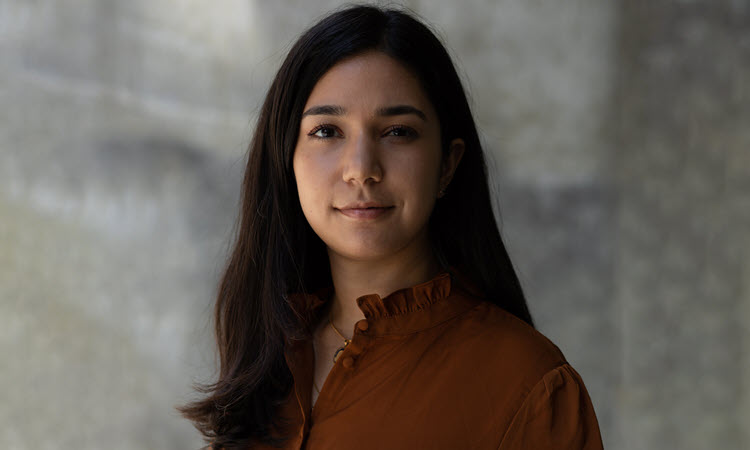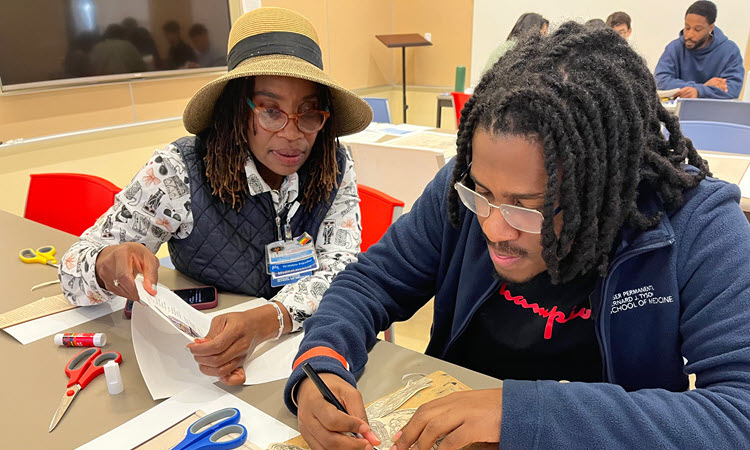Maryam Ahmad, a second-year student at Kaiser Permanente Bernard J. Tyson School of Medicine (KPSOM), has been awarded a 2022 fellowship from Periplus, a mentorship collective for U.S. writers who are Black, Indigenous, and people of color (BIPOC). Ahmad was one of 59 writers selected from more than 500 applicants to receive the fellowships, which were announced in February.
In the program, up-and-coming writers are paired with an established mentor in newspaper or magazine journalism or literary arts. Fellows receive feedback on their work and advice on establishing a career as a writer. Ahmad works with award-winning New York Times Madrid Bureau Chief Nicholas Casey, who covers Morocco, Portugal, and Spain.
Being named a Periplus Fellow is particularly important to Ahmad because there were few BIPOC students in her college writing classes and, as a result, she recalls never really feeling as though she belonged in writing spaces. “Becoming a part of the Periplus community has shown me that my voice is needed and important,” said Ahmad. “It’s been so affirming to be in conversation with other BIPOC writers. Through the fellowship, I’ve also gained access to writing and publishing resources, which has been transformative and opened a new world for me professionally.”
Mentors and mentees connect monthly about various topics such as building writing into a daily routine, craft concerns, making money in writing, and navigating career-related challenges like pitching magazines, obtaining an agent, or applying to graduate school. Mentors also read and provide insightful feedback on mentees’ work.
Ahmad began writing personal essays in middle school to make meaning out of her experiences of growing up Muslim and the child of Pakistani immigrants in small-town Tennessee. Writing helped Ahmad give voice to the internal conflicts and crises of identity she faced, and through her essays, she gained a clearer sense of self, carving out who she wanted to be in the world.
Currently, Ahmad is working on “How We Got Sick,” a manuscript exploring her personal and familial narratives of illness. The work also attempts to understand how racism, generational trauma, and family dynamics affect the body. Though Ahmad has not yet identified the specific medical specialty she will pursue, she envisions spending the majority of her time in clinical practice interacting with patients and getting to know their stories.
“I was drawn to KPSOM because of its emphasis on early clinical experience, such as the opportunity to see patients from the start of first-year [medical school], as well as its integrated curriculum that gives students a multidimensional perspective on medicine,” said Ahmad. She points out that the best part of her KPSOM experience has been “the diverse, supportive, and compassionate community of students.”



